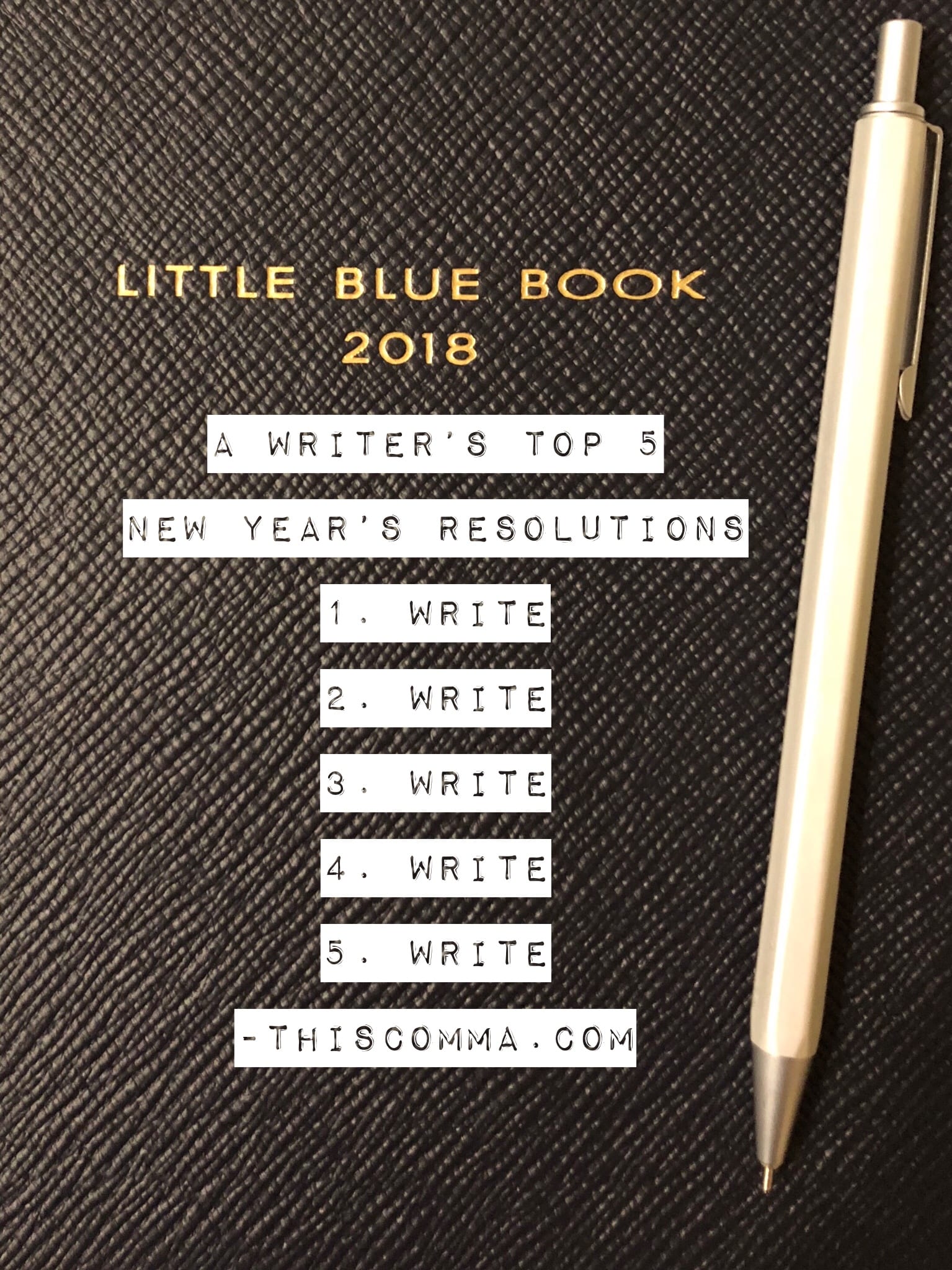If you’re a New Year Resolution hater, call them something else. Either way, it’s a proven fact that setting goals and establishing new habits – good ones, obvs – increase your chance of success in whatever your chosen field. If you’re a writer, you’ll probably be doing these anyway, in which case, good on you! Keep going! Sometimes it’s just good to remind ourselves, to reassure ourselves, that we’re on the right track.
1. Write Daily
If you can’t write daily, write mostly daily. Make it a priority. Make it a habit. Treat your writing seriously and with respect. Dedicate time in your week to writing and writing alone and stick by those times like your life, or your livelihood, depends on it. Sometimes you will sit there and your brain will freeze up and you’ll only be able to think thoughts that resemble the inside of a potato and the only words that will appear on the page are ‘sod’ and ‘it’. Doesn’t matter. What matters is you turned up.
There’s no way round this. If you want to be a successful writer you have to apply yourself regularly to the actual practice of writing. I can say with absolute honesty that the main reason I’m not (yet) a successful author is because in the past I have applied myself irregularly. I’ve a ton of excuses for why this is – too busy, kids, life etc, too many other things taking priority, too tired, writer’s block, and so on – but that’s all they are, excuses.
So, are you with me? Come on, we’ve got this.
2. Read
I’m almost certainly preaching to the converted here so apologies if that’s the case. Mix it up as much as possible. Fiction, non-fiction, seek out new writers, dip into the classics, try different genres, keep it varied and interesting. I have a particular passion for books about writing, especially those written by writers, so much so I’ll be doing a blogpost on this soon. Read like a writer, take inspiration, let the works of others fire up your creativity and inspire you. Your writing will benefit for sure.
3. Stay Healthy
Healthy body, healthy mind. Apologies again for the cliché. There are a lot of them about today, it seems. C’est la vie. It’s true, however, that keeping yourself well, physically, will benefit you as a writer. A balanced, nutritious diet feeds the brain, helps regulate hormones and keeps your energy levels up and improves your ability to focus and concentrate. You don’t have to follow a specific regime, just be sensible: keep caffeine, alcohol and sugar to a minimum and make sure you eat plenty of veg, lean protein and good fats. Omega 3s = brain food, so a good quality supplement might not be a bad shout. Also, drink plenty of water. Hydration is essential.
Exercise-wise, it’s not great to spend hours hunched over a computer so get up and move, regularly. Yoga and walking are excellent for resetting and reuniting the brain and the body. I have dogs so walk most days and there’s really nothing like it for clearing the head. I also try and add two or three short (20 mins) High Intensity Interval Training sessions into my week. It keeps you fit, improves stamina and releases bucket loads of endorphins, which generally just make you feel good about yourself. V important for writers, what with all the rejections and that, which I’ll come on to in a mo.
4. Keep a notebook with you at all times
Such is my obsession with notebooks that there’ll soon be a post about this too. Again, am sure you all do this anyway, but seriously, no self-respecting writer ever leaves the house without at least a scratty old beer mat on which to scribble notes. Ideas come out of nowhere and at the most inconvenient times. And when they arrive you must seize them, immediately, because they are like eels and they’ll slide from your grasp in a second and the they are gone forever into the parallel universe of Big Ideas where they all laugh and point at us for not having written them down. So don’t ever be without a notebook. And a writing implement of course.
Of course, you could always record yourself on your phone. Many people I know do, but personally, I’m not a fan. I tried it once, listened to myself afterwards and sounded like a four year old recounting a story they’d once heard but got it all wrong. No, I need words on a page, with scribbles and arrows and circles and pictures and things I can see. Do what works for you. The message here is, capture your ideas, don’t let the slippery little suckers get away!
5. Accept failure
Look. You chose to be a writer and failure, rejection, whatever, comes with the territory. You don’t have to like it. It’s never fun to be told that someone didn’t like your work or that some agent isn’t going to take you on, or you didn’t get shortlisted for that prize. But it happens and it’s likely to keep happening, over and over again. It’s important to remember though, as tough as it is, that it’s all part of being a writer. Take the knocks, accept that it’s part of the process and move on.
No writer, no matter how successful, is loved, or even liked, by every reader. Every writer in the world has a rejection/failure story, so think of it as a rite of passage. If something you’ve written has been rejected, you’re amongst friends. Accept it. Now get back to writing.
Good luck and Happy New Year!
If you have anything to add or any comments, I’d love to hear from you. Thanks for reading, Ann x

Go Ann!
Thank you ☺️